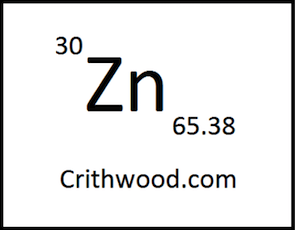
-----
Plastic balls for degreasing tank, are they appropriate?
Hi
Is it advisable to use plastic balls to cover the surface of the degreasing tank? Would there be any problem with the grease that accumulates at the surface? I am looking a way to reduce heat loss at the surface of a large tank.
Thanks in advance for any comments.
Saludos y mil gracias
plating jobshop - SLP, Mexico
February 12, 2008
First of two simultaneous responses -- February 13, 2008
The answer to your question would be dependent on a couple of things, as you gave very little info.
#1. Are you talking about a solvent based vapor degreaser, or an alkaline water based degreaser. I don't think normal
"plastic" balls would hold up well in a solvent degreaser, but plastic balls have been used in water based degreasing solutions for many years to minimize heat loss.
#2. What type of "plastic" are you talking about?
#3. Temperature of whatever degreasing solution you are using?
Your best bet would be to contact a manufacture of these balls and talk to them about your specific situation, and see what they recommend.

Marc Green
anodizer - Boise, Idaho
Second of two simultaneous responses -- February 13, 2008
Hi Guillermo,
Plastic balls for degreaser? One assumes/hopes that these balls are NOT affected by the fluid being used.
Perhaps go to the largest ones, 3" dia, by memory ...maybe 2 layers.
Most balls I've seen are made from Polypropylene ... but there are ping pong balls but they're a form of cellulose nitrate ... but expensive !
Yes, the 'grease' would build up on the surface but is that bad for the process?

Freeman Newton [deceased]
(It is our sad duty to advise that Freeman passed away
April 21, 2012. R.I.P. old friend).
Hi, Freeman. Thanks. I think the concern about plastic balls in the cleaner tank has to do with the worry of getting oil on the parts. If there are no balls, a grease skimmer and grease trap can be installed to (hopefully) drive any floating oil into a sidecar trap on the tank. If floating balls are present, this can't be done and the cleaned parts must pass through this grease layer and layer of greasy balls as the formerly clean parts are lifted up out of the solution.
Maybe the answer is that the balls may be okay on an initial soak clean tank but not on the final electrocleaning tank.

Ted Mooney, P.E.
Striving to live Aloha
finishing.com - Pine Beach, New Jersey
Ted is available for instant help
or longer-term assistance.
February 13, 2008
February 15, 2008
If you have grease floating on your degreaser it is not going to be very effective as the grease will simply re-deposit on the parts when they are removed.
This will show up when you do your water break test.
Fortunately, what is described as grease is usually excess surface active agent separating out of the solution due to poor control of the degreaser. This could be costing you more than heat loss. Try taking a sample and seeing if it will dissolve in water.
The balls you asked about are usually called chroffles and are very effective in retaining heat.
They are not without problems. Operators find that they get stuck in jigs and end up on the floor. They can be used for golf practice to get them back in the tank otherwise they can be a considerable trip hazard.
If you are basket dipping parts they are only practicable if you do not fully immerse the basket. Otherwise you will scoop out a basket load of balls with every load.

Geoff Smith
Hampshire, England
First of three simultaneous responses --
Is it advisable to use plastic balls to cover the surface of the degreasing tank?
YOU ARE THINKING ON SAVE HEAT AND REDUCE EVAPORATION?
RESPONSE IS YES
GREASE => WILL BE ACCUMULATED AT THE SURFACE. YOUR PARTS WILL BE IMMERSED IS THE TANK SOLUTION. SO, WHEN YOU PULL OUT THE PARTS THE GREASE COULD BE STICKED ON YOUR PARTS. SO YOU MUST PASS YOUR PARTS IN A A HOT WATER BATH.
CONCLUSION: YOU CAN DO IT
- Minneapolis, Minnesota, USA
February 15, 2008
Second of three simultaneous responses -- February 18, 2008
Thanks a lot to everyone. Your comments were helpful.
My concern is the very same that Ted described. And also the other comments showed me points that I never thought. Also I shall ask the supplier.
Thanks again. Mil Gracias.
Jobshop - San Luis Potosí, México
Third of three simultaneous responses -- February 19, 2008
About a year ago we installed polypropylene balls (about 60 mm dia) on three heated tanks containing degreaser (NaOH largely), acid etch (phosphoric / sulfuric) and zinc phosphate, - all run in the 50-60 °C range, and two of three are heated by immersion tube gas fired heaters. The third is heated by recovered waste energy from elsewhere in the process.
All tanks are insulated with 50 mm insulation on four sides and bottom, but are open topped.
The energy consumption was measured on the gas fired tanks, using run time timers (they are not variable fire burners), and so we have a comparison with before and after.
The balls save 30% of the energy, and therefore 30% of the cost of heating.
Downsides are mentioned above, balls stick in work, migrate out of the tanks etc, but with our arrangement of tanks being long side to each other, they only migrate normally to the next tank. A long handled fish landing net is used to put them back where they should be about once an 8 hour shift.
Worthwhile? definitely. On simple payback, three months.

Geoff Crowley
Crithwood Ltd.
Westfield, Scotland, UK

Q, A, or Comment on THIS thread -or- Start a NEW Thread
 it will pass.
it will pass.